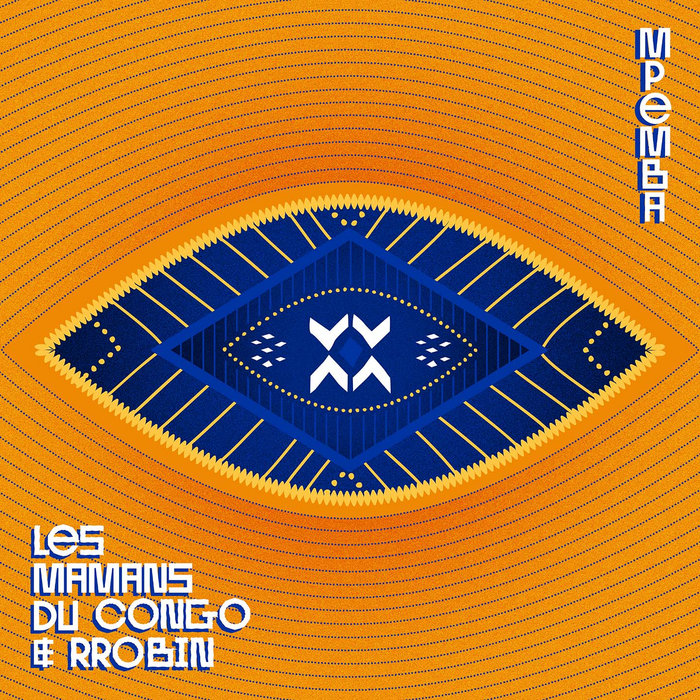
Mpemba – Les Mamans du Congo & Rrobin
this blog is GROOVY – check out great Soul, Funk, Jazz, Hip Hop, Bass, Breaks , Reggae, House n many more TUNES
Welcome to the rhythmic heart of Central Africa! We’re diving into the vibrant world of Brazzaville music, a delightful melting pot where sounds collide and cultures groove together. Whether you’re chilling in a café or dancing your heart out at a lively street party, there’s always something funky happening here.
Brazzaville isn’t just the capital of the Republic of Congo; it’s also a city rich in musical heritage. Situated along the mighty Congo River, this city became a meeting point for various ethnic groups, each bringing their unique sounds and styles. From traditional Congolese rhythms to modern beats, Brazzaville’s scene is as diverse as its people.
Before diving into contemporary vibes, let’s rewind back to tradition. Congolese music has roots deeply embedded in community life. Instruments like the ngoma (drum) and likembe (thumb piano) formed the backbone of early expressions.
Funny Fact: Did you know that traditional musicians sometimes used everyday objects? Yes! They’d make instruments from empty cans or gourds – talk about resourceful jam sessions!
In the mid-20th century, we saw an explosion in what would become known as soukou s—a catchy dance style that took Brazil by storm. Fusing Cuban rumba with local rhythms led to this hypnotic sound we all want to shake our hips to.
Did you hear about Franco Luambo? This legendary musician was often called “the sorcerer” because he mesmerized audiences with his guitar skills! Legend has it he could play so well that he even made chickens dance!
The golden era for African music unfolded during these decades—with stars like Papa Wemba rising to fame faster than you could say “let’s dance!” Wemba mixed traditional sounds with rock ‘n’ roll flair and captivated fans across Africa and beyond.
Fun Tidbit: Papa Wemba once famously wore a hat made entirely out of plantain leaves during one performance! Let’s face it – who wouldn’t want trending headgear?
Fast forward through time—today’s artists mix soukous with hip-hop, reggae, jazz…you name it! Artists like Obra Kizito are blending genres while keeping those classic vibes alive. Their melodies are not just heard but felt deep within your soul!
But here comes another fun fact—Obra Kizito once tried doing yoga before performing…and ended up tangled like spaghetti on stage! Now that’s what I call stretching your limits!
One cool thing about Brazzaville music is its diversity—not only does it embrace different styles but also collaborates with musicians worldwide. It showcases how universal our love for rhythm really is!
Crazy Note: In 2019, when two popular bands from France and Congo collaborated on an album titled Congo Beat, they accidentally sent each other dishes instead of tracks due to miscommunication—imagine opening an email expecting beats but getting recipes instead!
When discussing Brazzaville music culture without mentioning festivals? Impossible! Events such as Festival International de la Musique bring together local talent alongside international acts—it turns into one big party where no one wants dusk over dawn because dancing reigns supreme all night long!
Did you catch wind about last year’s festival mascot being a giant inflatable cassava root? Kids loved taking selfies while adults couldn’t stop laughing—what better way than embracing culture than with whimsical characters?
From historical tunes echoing through village squares decades ago—to electric grooves pulsating through modern streets today—music remains essential in connecting folks across generations here in Brazzaville.
So next time someone asks why they should immerse themselves into this astonishing genre originating right from our beloved capital; tell them it’s more than entertaining—it tells stories filled with laughter & friendship too…alongside some ridiculously funny moments along their journey homeward bound after every groovy note played.
Let loose those feet now—the vibrant spirit found within “Braza” will surely have everyone bouncing along wherever they go!

Mpemba – Les Mamans du Congo & Rrobin